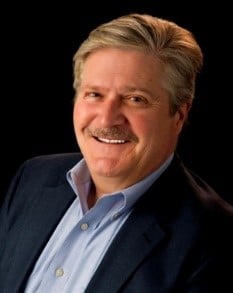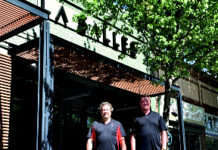
This is an extended version of an article that appeared in the January 8, 2018 issue of Radio Ink Magazine, with additional questions and answers, that did not fit into that issue.
(By Jon Quick for Radio Ink) The life of a baseball scout is grueling. The constant travel to places as far away as Des Moines, El Paso, Toledo, Mexico, and even Cuba. Waking up in your hotel room and trying to remember where you are. You go out and watch several games a day, looking for that diamond in the rough. Then there’s this high school shortstop in Scranton that everybody says will be the next Derek Jeter. You rent a car or take the bus down a dusty road to a baseball diamond in the middle of a cornfield. And suddenly, you find him. An 18-year-old kid. He hits and fields like magic. He goes on to be a World Series star. That’s the reward of a major league scout.
Star baseball players are discovered. They generally don’t fill out a resume and do a job interview in hopes of getting hired. They must prove that they’ve got the right stuff.
At this point you’re asking, “Just what does this have to do with the radio business?” A lot. If you’re looking to find the next great radio talent, in general, they are not going to come to you. You must go out and find them. Maybe they are in Fargo or Peoria. They were for me.
Rewind to 1984. I was a very young director of news and programming for the legendary WCCO in Minneapolis and in the middle of a 15-year run there. Our shares were then still in the double digits and our cume was in the millions. The other stations couldn’t even come close.
Yet there was a problem. We had little bench strength. The star personalities were getting older, and we knew the day would come when they would no longer care to work. WCCO needed to find the next big stars. So we ran some ads in the trades. Those of you who’ve been in programming know the experience. You get boxes upon boxes of tapes (back when there really were “tapes”) and your office is littered with them. You know the drill. Often, it’s tedious listening, and you come up with nothing.
Then, for once, I got smart. I decided that the next extraordinary talent was someone who was probably working in a small or medium market. So I put on my baseball cap and went on the road.
About once a month, I drove to those cities and towns. I brought a cassette recorder and camped out in motel rooms. I listened to countless radio stations. If I heard someone who sounded promising, I ran some tape on them. I eventually built up my “scouting report” notebook, listing the names, stations, and locations. On occasion I called some of them, telling them who I was and that I happened to be traveling through town and thought they were really good and could we keep in touch. They were thrilled.
You usually know pretty quickly if you’ve found someone. They just pop out of the radio. Two examples. There was this morning guy at WMBD in Peoria. Clever, funny, dry wit, compelling delivery. I eventually hired John Williams at WCCO. At one time he was doing major shifts at both ‘CCO and WGN. Today he does early afternoons at WGN.
Then there was the trip to Fargo, North Dakota. It was in the middle of January. I ran into a blizzard, and the normal three-hour trip took almost a day. I hit Fargo late at night and checked into my motel as the wind whistled and icicles formed on my mustache. You don’t know what cold is until you experience Fargo’s 70-degrees-below-zero wind chill. But I was determined to get some sleep, so I could be up early to hear this kid everybody was raving about. They were right. I hired Dave Lee almost right away and used him on weekends and fill-in for mornings. After about 25 years now, Lee is still pulling impressive morning show ratings on WCCO, an AM 50,000-watt clear channel powerhouse.
Still, today, I believe the best place to find future talent is the smaller and medium markets. Unfortunately, voicetracking has taken the place of so much real live talent, but they are still out there. If you look. And listen.
Sure, you can go out and hire a proven superstar talent from a competitor. Happens all the time. But there are risks. Someone who is a star in Los Angeles isn’t necessarily going to work in Minneapolis, and vice versa. The cultures and the “language” of your part of the country might be totally different, and the risk can be great. What’s more, how many companies have that kind of money?
In my experience, and in those of others you’ll meet in this article, it’s best to find people in the smaller markets who have incredible raw talent and are open to direction and grooming. Anybody can learn to read a log and operate the controls, but it’s very difficult to teach the art of being creative and entertaining. In fact, it may be impossible. So get out there and look. You’ll know real talent when you hear it.
To answer the question posed to me for this piece: “So where is the great radio talent found in this new era?” I assembled a virtual group of some of the finest minds in radio today.
The consensus seems to be that finding talent today is exactly how I described. Get out there and look and listen. It’s more difficult these days because so much talent has left the business, or they have been replaced by generic robot announcers who can be heard anywhere, saying the same things from coast to coast. Granted, voicetracking may be a necessity for those operators that have a strict bottom line, but the smart ones are those who still believe that great live and local talent will eventually reap huge dividends.
There is a caveat we should establish before going any further. Let’s agree that when we talk about looking for the next great “radio” talent, we’re talking about radio as a multi-platform brand. This means we’re looking for people who can go beyond performance on traditional radio. Instead, the ideal candidates are those who can also create and perform on social media extensions and even video, given the advent of blogs, vlogs, and Twitter and Facebook Live.
There is also some extraordinary talent out there who have abandoned radio as we once knew it and who are now — at a quickening pace — pursuing Web-based radio programs or podcasts. Some are doing quite well. Consider it new competition for our radio stations. Or consider it a new opportunity to extend our brands. The smart broadcasters are doing the latter and are finding substantial additional revenue as a result.
I invited these great radio minds — from various viewpoints, positions, and market sizes — to join me in a virtual discussion:
 – Tom Langmyer: VP of News/Talk/Sports Radio Programming for E.W. Scripps Co.; VP/GM of Scripps’ WTMJ-AM and WKTI/Milwaukee.
– Tom Langmyer: VP of News/Talk/Sports Radio Programming for E.W. Scripps Co.; VP/GM of Scripps’ WTMJ-AM and WKTI/Milwaukee.
– Bud Walters: Founder and President, Cromwell Group.
– Jimmy Steal: VP/Programming/PD, KDAY (Power 106)/Los Angeles.
– Walter Sabo: Talk Show Host, CEO of Sabo Media.
– Jeff McCarthy: VP/Programming, Midwest Communications.
– Phil Boyce: SVP/Director, Spoken Word Formats, Salem Radio Networks.
– Steve Reynolds: Talent Coach, Founder of The Reynolds Group.
– Kent Sterling: Host, PD, Entercom’s WXNT-AM/Indianapolis.
– Jake Weber: GM, Thief River Falls Radio (Minnesota)
– Van Harden: Morning Co-Host, WHO/Des Moines, IA
– Valerie Geller: Broadcast Consultant.
– Beverlee Brannigan: VP/Programming and VP/GM, Wichita for E.W. Scripps
Radio Ink: Where do you look for new, young talent to work in the industry, especially in markets 50-100 and 100-150?

Sabo: On the bus. In front of the classroom, on the next airplane seat. I pay very close attention to who can hold a crowd in any situation. When I met Dr. Ruth Westheimer, she was a professor at the City College of New York.
Sterling: Everywhere. Like Walter, I rode a bus in Memphis once as a passenger asked everyone who boarded what his or her weight was. She was hilarious. Not sure whether “How much you weigh?” would have made a great radio show. Always listen. Everywhere.
Langmyer: We’re constantly looking for talent in all-sized markets. There was a time when you’d simply post an ad. Today we must actively seek out talent. We often find people who are creating interesting audio through social media, podcasts, and Internet radio vs. just ”announcers.” Many of these people have something smart, informative, and entertaining to say. They express passion, and they often have a surprisingly different way of expressing their content.
McCarthy: Recruiting is an ongoing process. Young talents are constantly reaching out looking for not only a job, but some type of input and feedback. When you do conduct a talent search, reach out and offer them encouragement, because even though they weren’t ready for the current job, you’ve now established a relationship for future openings. If you treat people well, educate them, and allow them to be creative talents, you will develop a reputation of a wonderful place to work.
Reynolds: I think talent is all around us, just not in the conventional places we’ve long looked for them. I am always in search of people with the “it” factor. They’re everywhere — a waitress in a restaurant, a guy at the gym, your neighbor who sells cars. People who can engage you personally, who have a vulnerability to share their lives, someone who can tell a story and keep your interest.
Steal: At Power 106, Tito was the parking garage attendant, and many of our top-tier talents have been developed from our street team. Big Boy was working as a security guard 20 years ago. Sometimes the next star is closer than you think. I’m the most comfortable talking about finding, nurturing, and supporting talent from unconventional places.
Boyce: I would be looking at podcasts. That is the new farm.

Geller: Finding true talent is hard, and finding talent takes talent. I do a lot of listening and look everywhere — from YouTube to podcasts to funny personalities on Southwest Airlines. It’s a harder sell now for radio. If they want to do radio, many today are drawn into podcasting (the thinking is “Why bother with a radio station when you can do it on your own?”). Or they go directly to television or seek positions with online audio content such as Buzzfeed or Vice, etc. or they want to work at Apple, Netflix, Google, or Amazon.
In past years, they sometimes even showed up at the door — they’d be listeners and fans of radio and the station and wanted to be a part of it. Some of those kids who walked in the door are huge stars today in major markets. To attract the talented young people we need, radio must consistently broadcast the kind of quality of programming and content that they can hear and decide they want to be a part of creating. That being said, radio can be taught. Talent cannot.
Weber: I have pulled TV reporters onto a music morning show. I have used local musicians to be music radio on-air talent and found politicians make for good talk show hosts on Talk radio. Sometimes you can turn a listener into a talent. He called in awesome comments. He went on to do afternoons and later mornings. One of the nice byproducts of social media today is the outpouring of talented people shooting videos and posting creative rants on Facebook and Twitter. These people are part of an increasing talent pool for radio.
Harden: Many come from schools or colleges and begin as board operators, and perhaps producers. The good ones bloom and get a break to fill in, and in that case, the runway is open and they either fly or not.
Brannigan: I look in similar-sized and smaller markets. I also consider newcomers who might already be on our teams in other positions, like promotions. We attend job fairs at local colleges and universities looking for creative types and students with media interests. It’s important to cast a wide net. Extraordinary talent can pop up from anywhere.
But just because you find a diamond in the rough, it doesn’t mean you can pop ‘em on the air and they’re a star. There’s a lot to learn. Having a plan to bring them into the fold and take advantage of their attractive qualities takes intentional, strategic planning, and plenty of coaching.
Radio Ink: How are these people getting trained?
Sabo: The eternal truth is that most stars are self-trained and self-motivated, and must be. At their first jobs, they find mentors. There are a few good radio schools [left], such as the Radio Connection, which is national.
Sterling: They’d better be self-motivated to learn and improve because management is spread so thin they don’t have the time or energy.

Walters: Constant in-house training can also result in talent moving into other opportunities. Five of our six general managers have been trained with us. All are promotions from within, including program directors. Many have long years of service with Cromwell. One manager was a news director with us for 12 years. We subscribe to training programs, have outside consultants, and work together. We create an atmosphere for a great working environment where there is ample opportunity to grow.
McCarthy: We encourage continuous airchecking. In addition, we’ve established a management training schedule to bring about more leadership on all levels. Our goal is to develop the next level of brand managers and prepare them for the job.
Reynolds: That’s the million-dollar question, isn’t it? In many respects, they aren’t being trained. With cutbacks in the business, more and more program directors are managing multiple stations and have less time to invest in a place that requires attention, their talent.
The forward-thinking companies recognize this need and bring in people like me who are singularly dedicated to the growth of the personality images of the radio station. The biggest upside for any brand is to have compelling, relatable storytellers on the air who can connect with the audience. That’s how you command loyalty, which equals ratings and revenue successes.

Boyce: There is not much training going on in those markets for the reasons Reynolds noted. Those who really want to make it train themselves through trial and error, if management will allow it.
Geller: Many are getting their training in the podcast space. They’re simply doing it, making mistakes, seeing what works, and learning as they go. There are still many broadcast schools and broadcast stations and programs at universities — and public radio is a testament to talent coming up in that direction.
Internship is still the best way. It’s great on both ends. “Try before you buy,” giving the station a chance to see if a potential staff member is a right fit, and the intern gets valuable hands-on experience and training. Let them sit and watch from the shallow end before they dive in.
Weber: It takes an OM or PD with vision and patience to work with young talent. Take the time to work with a new talent like you would a new pitching prospect in the minor leagues. Let them help host live events to experience crowds. Let them sit in on the morning show to experience the pace and workflow. Quiz them frequently on pop culture and how it might be used to engage the community.
Don’t suppress the passion that attracted you to this new talent. Keep building confidence with someone who is naturally talented but not a “radio” person. You can teach technique, but you can’t teach awesome!
Brannigan: It takes coaches — program directors and other talent who are willing to mentor and coach newcomers. The other challenge is coaching those coaches. I observe well-intentioned programmers who just haven’t had the experience or training in how to effectively coach talent. An ill-equipped coach leading a strong talent can be a disaster.
Radio Ink: What is the pay like in markets 50-100, 100-150, and on?
Sabo: Pay is a negotiation. Most talent is grossly underpaid compared to those in other media. Yet some of the highest-paid performers in any medium are radio stars. No TV star earns more from their air work than stars like Howard Stern and Rush Limbaugh. The money is there (in the bigger markets, at least).

Sterling: Sometimes they own a piece of the station or show, or sell in combination with their talent duties. Poorly run companies — and we know who they are, don’t we? —continue to try to improve their bottom lines through cutting, and that usually means talent.
Walters: Program staff that is full-time is encouraged to handle a few sales accounts to add to their income and to their experience in the community. Many also get talent fees for endorsements or remotes after hours. In reality, sales become important to full-time airstaff.
Geller: Shockingly low. That’s one of the reasons we are struggling to get talent. You pay for quality. If you do not, you get what you pay for.
Weber: Again, it varies depending on format and shift. A sad reality is that on-air talent without any other “talents” like music, programming, imaging, or website/social media are likely part-time at best. The offer of remotes and other ways to make additional money is always used to hire talent these days. If you’re a PD/morning guy in a 50-100 market, it’s my experience you make about the same as a 100-150, but it varies based on local cost of living.
Brannigan: Pay levels have significantly shrunk over the past five or 10 years. New talent probably enters with salaries in the $20,000-plus range. When talent makes themselves valuable, pivotal, connected, the salary can go up significantly. There are economic realities in markets 50-150, though — even for our best talent, there are limits.
Radio Ink: Are there even any radio jobs out there?
Sterling: Sometimes, talent needs to be creative in opening management’s eyes to the wisdom of hiring local. Waiting for the phone to ring is almost always fruitless. Get to management, make a specific pitch, and if he or she sees the wisdom, opportunities may arise.
McCarthy: Yes, at least in our company. Learn to form your own bench or minor leagues. Know your own candidate well, whether from the outside or in your own group.

Langmyer: As visionary broadcasters are making a deliberate shift back to localism, there are certainly opportunities for people. Today’s jobs require more broad skills than what was once expected. Today’s talent must be actively engaged on all platforms, understand how the media experience converges and how they play in that, be technically adept — and be more than a just a “content machine.” Talent needs to be curious, good with people, visible in the community and connected to the business from a sales perspective, as well.
Walters: There are always sales and digital jobs available. Our program jobs have not turned over on the full-time basis, but we have part-time opportunities.
Reynolds: There absolutely are, with the companies who believe in talent and know these people are their true point of differentiation in the cluttered marketplace. I always suggest that every talent know who these companies are and build relationships with the key people in them if they are not currently with an owner who believes in the power of personality radio.
Boyce: Many small markets do hire local talent. Usually it is a local ex-politician, or a radio jock who wants to get into the talk side.
Geller: There are. I’m currently reviewing demos for several stations that are hiring.
Weber: Radio is not unlike any other business. People retire, move to another job opportunity, move to sales, move up to a higher programming position in a large company, move up to GM, or even leave the field completely. There are jobs. But unless you are accomplished, you will be in a lengthy line of job seekers and the compensation is not great.
Become multidimensional. Learn more skills. Become a student of technology and social media. Discover how the best in the business moved up, and learn from the successful people in radio.
Harden: Yes, but WHO Radio has been incredibly stable, and the on-air personality turnover is not great. Board operating and producing positions happen far more frequently.
Brannigan: A thousand times yes! Every programmer I talk to is looking for strong air talent and struggling to find people with the right set of skills, and a desire to truly connect with listeners and win.
Radio Ink: How much is being voicetracked in medium markets?
Sabo: Too much.
Sterling: Ditto, Walter. Local is where the money is, but sales staffs have evolved from those who knew how to create mutually beneficial partnerships into order takers who embrace transactional sales rather than dynamic local plays.
Langmyer: There is a fair amount of voicetracking done in all sized markets. But make no mistake, radio has many opportunities for people beyond “That was … here is.” Stations that produce local programming, even if for just parts of the day, need smart people who can write news, tell stories, interview people, and create real-time content — and know how to move product.
Walters: We are in small markets (except for Nashville). We use Westwood One 24-hour formats for our music and our local staff for local involvement plus ESPN and news networks for our Sports and News/Talk stations. We are more “live” daytime than voicetrack, but satellite/network voices are important on certain stations.
McCarthy: We use voicetracking to help certain stations that might not be able to afford better talents. However, local and live wherever possible is the best way to build a great brand. Our larger revenue-generating stations are for the most part live and local 24/7. WIXX/Green Bay is never tracked and we’ve grown many successful talents on the overnight show that have gone on to better dayparts, become brand managers and even operations managers. Treat those opportunities as a place to grow future talent.
Steal: Talent is the greatest distinguishing factor we have from uncurated generic digital playlists. Music is emotional, so it needs to be delivered emotionally by a passionate staff of knowledgeable communicators! Everywhere I go, I’m always looking for the next one.
Geller: Voicetracking is rampant. Even if an on-air DJ does a live shift, because of the multiple station ownership situations, it’s not uncommon for that person to get off the air and then voicetrack for one of the other stations in the cluster.

Weber: Way more than should be allowed. I would say over half of all broadcast hours in medium-market radio are voicetracked or all imaging. Half! Why do we abandon our audience when it’s not convenient?
Brannigan: A fair amount. Strong voicetrackers who can sound live and local are very valuable — but there is a new group of radio talent developing who only knows how to voicetrack and has not done live radio. That’s very scary to me. The ability to be live and local — in real time — is very important.
Radio Ink: Is radio starting to sound milquetoast as you drive across the country because of lack of talent?
Sabo: I long for the station that scares me, that is subversive, that sounds dangerous. A few solo hosts and jocks pull that off, but oh, please, could I hear a dangerous station?
Sterling: I love what Walter says here about “dangerous stations.” Wouldn’t it be great if talent hadn’t evolved into homogenous voices of mediocrity?
Langmyer: There is a difference between typical milquetoast radio stations that are basically jukeboxes versus those who employ unique talent. Show me a talent who’s able to generate revenue through connection to advertisers, and I guarantee that talent will be employed somewhere.
Walters: Small markets sound more original than many major markets.
McCarthy: That may be true in some cases, and there are several reasons for the sameness. Some are terribly afraid to make mistakes, thus taking the safe and boring route. Many are not coached on a regular basis, and certainly not with consistency. Brand managers and PDs are taking on more and more responsibility and not having the time to work with the talents. Laziness and complacency can enter the equation.
Find talents doing something good and highlight it. Clear direction and positive feedback will build confidence and let the true talent emerge. We encourage creativity from the individual. I don’t expect any talent to sound like the others. Anyone who has ever cracked a mic didn’t get into the business to read liner cards. Let the thoroughbreds run!

Reynolds: We went through a period where many believed that taking all the things that might turn off a listener (i.e., talk) off the station would mean higher ratings. When in reality, the opposite is true. Talent, if done well, build the brand and end up insulating the radio station.
Great companies know it’s a balancing act, but if you don’t have a brand built on significant music images and fun, real people to connect with the audience, you won’t last long. Just taking away things you believe the audience will push back from will make you bland and boring. I like the analogy the folks at Coleman taught me: take all the polarizing rides out of an amusement park and you’ll be left with nothing but bumper cars. And who’s going to go to that?
Boyce: Yes, and that has been going on for a long time. Frankly I listen to my stations all over the country via their station apps, or TuneIn.com or iHeartRadio.com. If you have a cell signal in reach, you can listen to great radio anywhere you go.
Geller: There’s a lot of competition for commercial terrestrial radio when you’re in the car. Many listeners are discovering public radio there — all demos/listeners want to be informed and entertained with content that’s original, relevant, funny, and smart. Audiences want good music, but also seek good company. They like storytelling.
A recent survey showed long-haul truck drivers share their listening time between Country radio and public radio. Also, with SiriusXM and Pandora, there are many other “radio” choices if the traditional radio station you’ve got on becomes tepid and boring.
Weber: Absolutely. I blame less talent training and lack of required talent aircheck meetings. I have driven cross-country a few times and hear the same prep service jokes used in the same market on different stations often. I also believe over-formatting has caused a robotic sound. The stations that stand out to me are fun, full of energy, and the staff are like the cast of a great sitcom. They all seem to have fun together on the radio, and you become part of a daily story that feels comfortable and something you hate to miss.

Harden: Yes, it’s sounding milquetoast. No, it’s not because of lack of talent. There are talented people out there, but we have shot ourselves in the foot, or worse, by restrictive, formulaic rules of what talent can do. It becomes worse when young people don’t hear people they want to emulate because nobody really desires to emulate something a computer could do. And not coincidentally, fewer people are wanting to listen to radio stations that are run in formulaic fashion rather than wide personality.
Brannigan: The percentage of serviceable, utilitarian air talent is probably higher than it ought to be. Radio would be better with more talents who speak one-on-one to a listener. Relatability is everything. And radio needs more talent who have the mindset to entertain. You can get a Luke Bryan or Journey or Katy Perry song anywhere. Entertaining radio talent is magnetic. Radio needs entertaining personalities.
Radio Ink: How does radio need to improve its sound in those markets?
Sabo: Radio sounds great to most listeners. It serves its mission well; that’s why it is so popular and ubiquitous in American life. Experimental, daring stations are always needed to take all the other stations to the next level.
Sterling: I would say, “Don’t be afraid to spend in order to earn,” but everyone would laugh.
Langmyer: The “sound” of a radio station is subjective. Some of the most successful radio stations may not sound great to the ears of a “radio person” but instead sound like the communities in which they operate. Typically, those stations make more money. Often, it’s because they’re more connected with their communities — and less concerned about big voices, canned production elements, generic radio-ese, sounding like a subscription music service, and other tactically based elements that are confused with having a true vision and mission.
Walters: More local involvement is always the key, plus following some basic programming tenets.
McCarthy: Serve the market. Know your listeners. It’s fine to study other stations and borrow ideas, but in the end, make it your own. It’s hard, but the results are fantastic. Keep moving forward with fresh ideas. No radio station should be “set it and forget it.” It’s a continuing process.
Reynolds: I think an investment in research to know where they are in the market vis-a-vis their competitors, and then believing in and supporting their talent, could be the one thing that helps them across that magical line of becoming a radio station that matters in their city.
Steal: All of what we’re currently suffering through is due to consolidation. We cannot save

our way to success, or save our way to the top of consideration for entertainment choices. We must bring a new generation of kids to radio, and the only thing that we have that’s unique is talent! That is not the place to cut corners and underpay.
Boyce: I would make sure every station has a strong local operations manager who truly loves the station and gets what you are trying to do. Then let them treat the station like it was their baby.
Geller: A lot of what we hear is boring. Not relevant. Too many commercials. Not fun. Not distinctive. We need to fix it.
Weber: Go back to the basics. What if we treated every station owned by a large group like the most popular and revenue-generating station for six months and see if they increase billing and ratings? When you dismiss stations in your group, so does your sales staff and audience. Make sure there is someone passionate in charge of each station. One guy programming three stations while also doing an air show, production, and remotes is not going to give you a great station on the second and third. Take chances! Be fun! Build a sitcom cast culture where talent become real stars on that brand.
Harden: Corporations say they know all radio is local, yet they apply broad, general researched rule and regs programming-wise and everybody sounds boring and non-magnetic. Loosen the rope on these people. Are there downsides to that? Yes, but not as many as ruining the overall image of radio as a stale jukebox or verbal machine.
Brannigan: Well, it doesn’t happen by accident. It’s being intentional about identifying promising talent, then growing and coaching them. Ideally, companies embrace the concept of air talent value and invest in the growth process. Of course, that costs money and takes time. And it takes people in key positions who understand the care and feeding of air talent. You need those people to lead the process.
Radio Ink: How does radio get the on-air people ready to grow into the top 10?
Sabo: Small and medium radio management has never been nurturing or loving and leading the path to major markets. Talent has always been self-actualized. If you want to have some fun, listen to airchecks of the legends when they worked in small markets — you can hear it! They always sound major-market. The leap requires ambition, self-determination and never, ever being satisfied with their current set of skills. All the major talent constantly works to improve.
Sterling: Hire creative people, and turn them loose.
Walters: In our markets we try to hire folks who want to live in and stay in our communities. In many cases they are just as talented as large-market people, and more secure. Many of our younger and part-time staff come from local area colleges.
McCarthy: Training, feedback, input, clear communication and direction. Focus on the positive and build their confidence. They should never have to guess what is expected of them.
Reynolds: By helping talent become comfortable with feedback. You only do this by spending time with them. Look at the truly iconic quarterbacks in the NFL. They got there by working their way through middle school, high school, and the college ranks working with mentors who help them see this strategically. I always tell talent that unless you’re comfortable being made uncomfortable at times, you can never grow, because it’s in that discomfort we most learn.
Boyce: When you are dealing with talk show hosts, it really doesn’t matter what size market you are in. The growth will happen after you develop a track record of success and start to sell something. Anybody who does will always have a job in radio.
Geller: Develop them. It’s basic in business, you need to spend to earn. Invest in talent and training.
Weber: First, find out if they really want to work in top 10 radio. I have found more often than not, most on air talent have no interest in working in major-market radio unless they already live there. The life expectancy can be very short, and why risk leaving the big-fish, small-pond life unless you’re single, young, and mobile? If you are that person, we need to open the weekend doors for prospects.
Harden: Allow radio to be exciting and unpredictable enough to get more and more people into the markets below the top 10. They’ll grow and pop up as great personalities and emerge as obvious top 10 material.
Radio Ink: Where is the next Ryan Seacrest, Elvis Duran, or Sean Hannity or Rush Limbaugh going to come from?
Sabo: Elvis has been in NYC for 20-plus years. He broke through the tier of consciousness about a decade ago. Nobody works as hard as he does, and few are better managers of their team. Elvis is the complete package, and iHeart is damn lucky to have him. Ryan was on in L.A. as an AC jock for at least 10 years before he got KIIS in the morning and then TV. The answer is, they are waiting in line and working down the hall.
Sterling: Everywhere, but the shame is there are outstanding potential hosts being downsized into different professions because of managerial indifference. They don’t even know what they have. The talent drain is directly attributable to the PDs who are being asked to do everything but pay attention to their radio stations.
Langmyer: The next superstar will be those who are multi-platform stars in a local market and have the ability to adjust to being multi-platform stars on a national basis. These people exist! Stars continue to be made. TV makes music stars on the various competition shows. Radio can do the same. Think about the creative ways in which we can do that on a local and national level. The possibilities for radio-based stars are huge — and smart radio leadership can create those opportunities.
Walters: To be honest, I’m not worried about where larger companies will get talent. My hope is that talent will want to be with and stay with us if they are making a difference in the community. We try to hire folks who have a reason to be in our areas. Maybe they went to school or college there. It is a primary criterion before everything else as it helps our localism and longevity.
McCarthy: Somewhere in their career, these stars had fantastic mentors and supporters.

And someone gave them the power to be personalities. Do your best to spot talent. They may not be the best disc jockey, but that’s something you can teach. They either have talent or they don’t. And don’t be afraid of coaching them up and losing them. The more you gain the reputation of advancing staff to bigger things, the better it is for you.
Steal: As far as where the next superstars of mornings are coming from, well, they’re waiting on your table, repairing your car, checking out your groceries, having fun on a podcast somewhere, or even working security at the building your station is housed in! For the most part, they unfortunately aren’t in your in box.
Boyce: But if you want to know where the next Sean Hannity will come from, it will probably be podcasting. I am seeing some great folks develop online, and find a larger audience there, and you can track it by downloads. They go viral, and become addictive, and they can develop into radio stars there. Problem is, once they get too big and they are making money on their podcasts, they may not want to come back to terrestrial.
Geller: From anywhere!
Weber: Social media! No question. The people who are at the top of all the major broadcast ownership programming departments rarely look past people they know personally or have a working relationship with from a station or PD. I really think private small-market ownership will eventually become the talent pool by embracing the nontraditional next stars of radio due to necessity. We have very little choice but to expand our search to include talent outside our industry who will become the next industry sensations.
Brannigan: OK, so here’s the rub: we don’t need another Ryan Seacrest or Elvis Duran. We need the next authentic talents. They are people who have a strong sense of who they are and are not. They’re self-realized and driven to be themselves. Then we need programmers and companies who can spot their star quality, invest in them, support and encourage who they are and what they do. That’s how our next stars are born.
Jon Quick is a veteran manager of over 25 years for CBS and Emmis. He can be reached at 317.432.0309 or [email protected].









Quickster: Outstanding THINKING and
DOING on your part!!
Forgive me if I miss the halcyon days
(68.6 %) at 8-3-0, pretty much pre-FM.
I have never since felt I was a small part
of serving mass public need.
For 8 years my mentor Larry Haeg
Sr. LET/ENCOURAGED me to shake the
rafters, but I did not realize, for decades,
how much power he granted. No wonder
News and Sales didn’t like me!!
TalkyHo!! – Rob Brown
My credentials: 4 decades PMD at WTMJ through at least a dozen PDs and 6 or more GMs. Ret 2010. RE: Coaching. I got very little of it. Wish it had been a regular feature of my employment. But, it must be from someone who is interested, respected (by the talent) AND qualified. Not necessarily the PD, who is likely to have “peaked” on-air at a lower threshold. Many PDs are just ratings manipulators. If nothing else, give constructive feedback including positives. RE: Compensation. Tie talent bonuses to revenue increases NOT ratings. Explain how the talent’s contribution and the revenue are related. For instance, what percentage of their time slot’s revenue should be paid to them.
In other words: These folks are providing no more than a “wish list”. Talent is now expected to be multi-dimensional, have already acquired on-air expertise and be willing to work harder for less money – and for that situation to continue with further compensation to be addressed “down the road”.
As to “coaching”: The commentators treat coaching like it was a set of methodologies that are already readily available and easily applied when they are not
Radio has been stagnant for a reason. Improvement can be assured by doing what, specifically?
Even as all the contributors have credibility and vast experience, they are still making bold, vacuous pronouncements, and they are still holding empty sacks.
“Move along, people. There is nothing to see here.”
(My key questions to these exceptional folks are: 1. What, specifically? 2. How, specifically? and, When, specifically?)